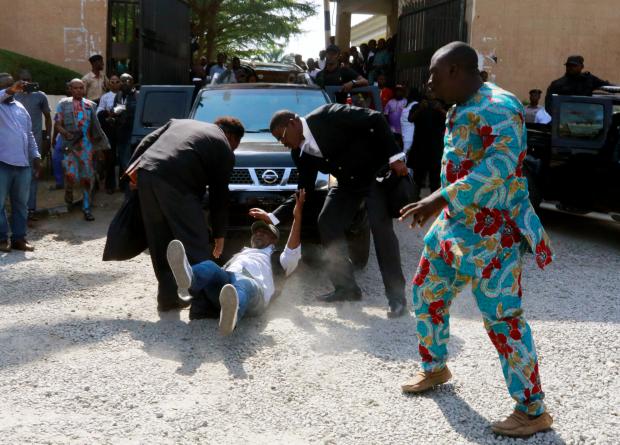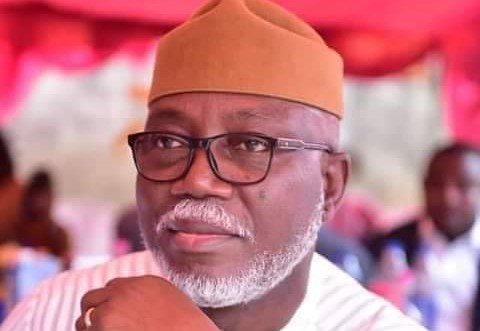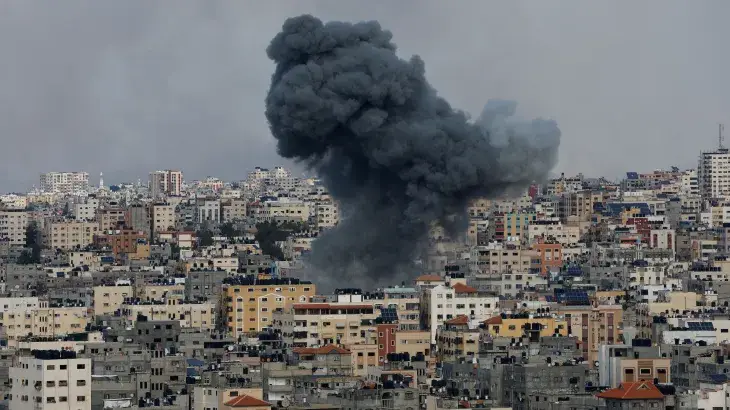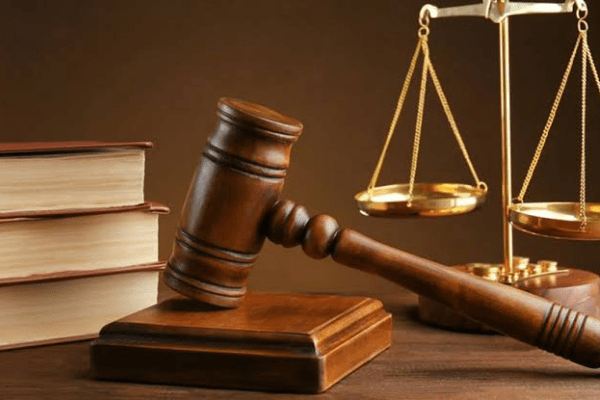By Ibe Pascal Arogorn
There is no worse tyranny than to force a man to pay for what he does not want merely because you think it would be good for him —The President, General Muhammadu Buhari (rtd) has chosen to become major oppressor for Nigerians.
On 3 August 2019, The Presidential candidate of the African Action Congress (AAC) in the February 2019 presidential election in Nigeria, Omowole Sowore was arrested by operatives of the Department of State Services (DSS).
The publisher of the news website, SaharaReporters and Presidential candidate of the African Action Congress (AAC) in the 2019 presidential election has been arrested by security agents believed to be personnel of the State Security Service (SSS).
According to Premium Times, the publisher cum politician was taken into custody on Saturday morning.
In the early hours of Saturday, August 3, 2019, at 1:25 am, Sowore tweeted to announce the presence of DSS men in his house.
“If Omoyele Sowore has been arrested in an attempt to stop the protests he helped to organize, that would be a damning indication of the government’s increasing intolerance for critical voices,” said Anietie Ewang, Nigeria researcher at Human Rights Watch. “The mere use of the word revolution as a slogan is not enough to support a claim of violent insurgency and should not be treated as a crime.”
Sowore, the publisher of a New York-based Nigeria news website, Sahara Reporters, ran against President Muhammadu Buhari in the March 2019 presidential elections. His political party, Africa Action Congress, declared August 5 the beginning of “Days of Rage” to protest, among other things, an alleged lack of a level playing field in the March elections. Sahara Reporters posted video footage of his arrest by armed security officials. The security agency’s public relations officer, Peter Afunaya, said that Sowore was arrested “for threatening public safety, peaceful co-existence, and social harmony in the country” by calling for a revolution through the protests.
Based on media reports, the Nigerian government placed Amnesty International on a security watch on August 1 for allegedly reproducing a message by the organizers of the Revolution Now protests in a tweet. The reports were soon followed by protests at the organization’s Abuja office by people demanding that the group leave Nigeria. Amnesty International released a statement restating its commitment to human rights in Nigeria despite “sponsored protests” and efforts to smear the organization. In a tweet from the Nigerian Presidency’s Twitter account on August 4, the government criticized Amnesty International, claiming it was promoting tweets that called for the overthrow of the country’s constitution.
Despite Sowore’s arrest, his supporters carried on with the planned protests on August 5. In Lagos State, officials of Operation MESA, a joint Internal Security Operational platform made up of the Army, the Navy and the Air Force, surrounded the National Stadium, where the protesters planned to convene. A journalist told Human Rights Watch that armed security officials were stationed at the protest venue as early as 6 a.m. before the protesters arrived:
The police warned the protesters to leave before they fired tear gas. I saw policemen arrest and throw two of the protesters arguing with them about the use of tear gas in their van. I left the area immediately to avoid any trouble for myself.
On the release of Omoyele Sowore on 24 December 2019, it was revealed that the Officials of the US Embassy in Abuja were reportedly cited at the court during the resumed hearing of the fundamental rights enforcement application of Sowore in which a Federal High Court judge, Justice Ahmed Mohammed, withdrew from the matter.
Following reported invasion of the courtroom to re-arrest Sowore on November 29, some members of the US Congress including Bob Menendez and Karen Bass had in separate statements called for the intervention of the US and the United Nations over alleged human rights violations in Nigeria. Also, the US State Department and the UK government asked the Nigerian government to respect rule of law.
Worldwide condemnation has trailed Nigeria’s government the violent re-arrest of journalist and activist, Omoyele Sowore, on Friday (Dec. 6). It came less than 24 hours after Sowore and his co-accused, Olawale Bakare, were freed after 125 days in detention during which two courts had granted them bail. Government agents stormed the Federal High Court in Abuja, manhandled the journalist in full glare of world media.
Nobel Laureate, Wole Soyinka slammed agents of the Department for State Security (DSS). He called on all civil society organizations in Nigeria to unite and give a coordinated response against the government of president Muhammadu Buhari for violating the rights of citizens.
The horrific way agents of the DSS manhandled Sowore in court had also drawn the wrath of US Senators representing New Jersey where Sowore is a resident. After weeks of behind-the-scenes pressure on the government of Nigeria to release Sowore, Senator Bob Menendez (D-N.J.) with Opeyemi Sowore, the wife of Omoyele Sowore, came out in front of the world media to rebuke Nigeria.
“That is unacceptable in a country that calls itself a democracy. The world is watching,” the ranking member of the US Senate foreign relations committee said. He warned Nigeria that there would be consequences should anything happen to Sowore.
Joining the criticism, the other senator from New Jersey, Cory Booker, took it up a notch. He warned Nigeria to pull back from its dangerous path. “This is a shocking affront to the country’s rule of law and Nigeria must cease its dangerous attacks on freedom of expression,” the Democratic Party presidential candidate said.
In their intervention, the US Department of State: Bureau of Democracy, Human Rights, & Labor also spoke out against Sowore’s re-arrest. In a reminder to the Nigerian government of what democracy entails, the department stated: “respect for rule of law, judicial independence, political and media freedom, and due process are key tenets of democracy.”
Some powerful state governors now regularly use security agents to arrest and intimidate journalists and activists who dare to question their actions or attempt to hold them accountable. At any point in the past year, governors of Kaduna, Cross River, and Bayelsa states have held one or more people in detention. Some of the higher profile journalists and activists currently in detention in Nigeria include Dadiyata Abubakar Idris, Stephen Kefas, Agba Jalingo and Jones Abiri.
Mr. Dadiyata Abubakar Idris, a university lecturer and critic of the governor of Kaduna state was picked up on Aug. 1, and Stephen Kefas was picked up May 8 in Rivers state but transferred to Kaduna state. They are being held on the orders of Kaduna state governor, Mallam el Rufai. Agba Jalingo, publisher of CrossRiverWatch was picked up August 30 in Cross River for treason and disturbing the peace.
Jones Abiri, publisher of Weekly Source in Bayelsa state, is facing terrorism charges. He was picked up in March while he was meeting with his staff. Previously, from July 2016 till August 2018, the DSS held him without charge and without access to his family or a lawyer.
During the Nov. 16 2019 special elections in Kogi and Bayelsa states, journalists were attacked and prevented from doing their jobs, according to the Committee to Protect Journalists (CPJ). In Asaba, the capital of oil-rich Delta State, the editor of online news Big Pen Nigeria, Joe Ogbodu and reporter for the National Mirror newspaper, Prince Amour Udemude, are facing criminal defamation and disturbing the peace charges for exposing corruption in the oil industry.
Nigeria has long had a vibrant media and vocal civil society, which has been buoyed in the two decades since the country’s return to democracy in 1999. But the long history of military rule and authoritarian habits by past governments are baked into the political DNA. It’s worth remembering Buhari was a former military head of state in the mid-1980s.
Again, Nigerian authorities arrested five activists who were organising a an anti-government protest, severely beating the most prominent of them Omoyele Sowore, his lawyer said Saturday.
Sowore’s lawyer Femi Falana demanded his client’s immediate release following the arrests in the capital Abuja overnight December 31, adding that he had been placed in a dangerous section of a notorious prison.
The police officers who arrested Sowore, who is also a journalist, “subjected him to severe beating and left him with bruises all over his body,” Falana told AFP.
“As if that was not enough he has been locked up in the midst of armed robbery suspects at a notorious detention facility called ‘abattoir’,” the lawyer said.
Several hours before his arrest, the opposition leader issued a tweet calling on Nigerians to march in the street to denounce bad governance in Nigeria.
Contacted by AFP, the police confirmed the arrests took place just after the New Year began.
The FCT police command arrested the five activists at 12:30 am on January 1 in a “swift response to a distress call received from some tensed residents” over “an unusual gathering and movement,” the police said.
The five suspects were arrested for “unlawfully gathering at very odd hours, thereby causing palpable tension amongst the residents of Gudu and Lokogoma areas of the FCT,” regional police spokeswoman Mariam Yusuf told AFP.
In Nigeria, the civic space continues to shrink. Clear examples of this are the consistent attacks on freedom of information and expression as well as media freedom, which are all constituent parts of a country’s civic space. Since 2015, attack on journalists and media activists have continued unabated. Between January and September 2019, at least 19 journalists and media practioners have suffered attack. Amnesty International has been closely monitoring these attacks and now reports on how they have contributed to the violation of other human rights in Nigeria. These attacks take the form of verbal and physical assault, as well as indiscriminate arrest and detention by Nigerian authorities. These violations are mostly perpetrated by Nigeria’s security forces – the Nigeria Police, the Nigerian Army and officials of the Department of State Service (DSS), and they occur when journalists and media practitioners seek access to information, share information or express critical views that could drive public opinion.
Oftentimes, dissenting views expressed by media practitioners are criminalised, particularly when they revolve around sensitive issues. Also, the stifling of freedom of expression for these groups occurs in circumstances where journalists are pressured to disclose their sources of information. Those who spoke to Amnesty International confirmed that they came under intense pressure from Nigeria’s security officials to reveal their sources of information, particularly when they published stories that focused on corruption, elections and armed conflict. Some of the journalists were kept under surveillance, while others received death threats via telephone calls from unidentified people. Many journalists also came under attack while reporting the 2019 General Elections across Nigeria.
The failure of Nigerian authorities to investigate cases of indiscriminate arrest, detention and prosecution of journalists and media practitioners ensures that perpetrators are not held to account for these human rights violations. Victims who suffered arbitrary arrest and detention told Amnesty International that they were tortured and pressured to write confessional statements, which were used to prosecute them in court. While many of them faced indiscriminate charges such as ‘defamation’, ‘terrorism’ and ‘cyberstalking’, others had charges such as ‘kidnapping’, criminal trespass and theft of state documents brought against them. Worse still, many of the journalists were prosecuted under the Cybercrime Act and Terrorism (Prevention) (Ammendment) Act 2013, alongside other laws. The Terrorism (Prevention) (Ammendment) Act 2013 prescribe the death penalty for those found guilty. Thus making journalism a dangerous venture.
In cases where journalists and media practitioners sought legal redress for violations suffered, the authorities have failed to obey court judgements, while halting access to justice and the right to an effective remedy. Reporters Without Borders, an organisation that conducts advocacy for freedom of information and press freedom, ranks Nigeria 120 out of 180 in its 2019 Data of Press Freedom ranking. The report also rated Nigeria as ‘difficult’ for press freedom and net freedom. Also, the Committee to Protect Journalists (CPJ) in its 2018 Global Impunity Index, stated that there were thirteen unresolved murders of journalists in Nigeria within the reporting period.
Under national and international law, Nigeria has an obligation to respect, protect, promote and fulfil the right to freedom of expression and media freedom. This briefing, therefore, documents illustrative attacks on journalists and media practitioners in Nigeria. While rendering their testimonies, it reveals the pattern of violations and concludes by making recommendations to the Nigerian authorities at both federal and state levels.
Nigeria currently facing increased banditry, insecurity, terrorism inflation and economic recension yet the General only sleeps, wakes up to prosecutes activists bloggers and journalists.





